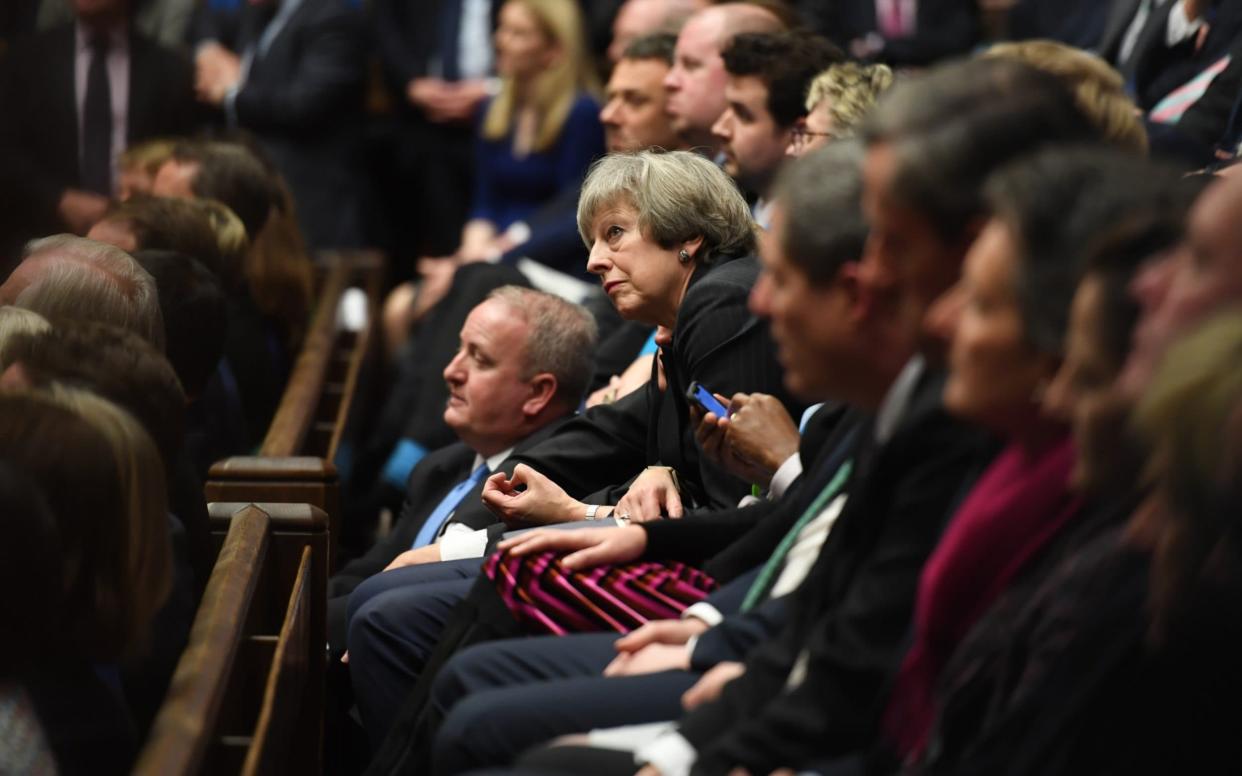Exclusive: Tory foreign aid rebels like Theresa May are out of touch with Red Wall, says ex cabinet minister

- Oops!Something went wrong.Please try again later.
- Oops!Something went wrong.Please try again later.
Conservative rebels have been warned not to return to the "dark" days of 2019 by "messing around with legislation and breaking conventions" to "make a political point".
Government sources compared a looming rebellion over foreign aid spending to the parliamentary coups at the height of Brexit, that saw backbenchers seize control of the Commons order paper with the help of opposition parties. "It won't end up helping with humanitarian spending," one source insisted.
The warning came as Esther McVey, the former cabinet minister, today suggests the rebels, including Theresa May, the former Prime Minister, were out of touch with public opinion and should return to "Conservative principles".
Tory MPs led by Andrew Mitchell, the former chief whip, are attempting to compel ministers to reverse their decision to temporarily slash overseas development spending from 0.7 per cent of gross national income to 0.5 per cent.
The decision was taken last year due to the "economic emergency" arising from the Covid-19 pandemic. Boris Johnson chose to suspend the 0.7 per cent target despite its inclusion in the Conservatives' 2019 manifesto.
The MPs have now offered an "olive branch" to the Government, which would see a minister stand at the Commons despatch box and commit to reinstating the 0.7 per cent target next year, by which time, they say, the economy will have improved.
In the meantime, more than 30 Conservative MPs have publicly vowed to vote in support of an amendment to the Advanced Research and Invention Agency (Aria) Bill in the Commons on Monday. If selected by Sir Lindsay Hoyle, the Commons Speaker, and approved by a majority of MPs, the amendment would require the Government to provide the aid spending shortfall from Aria's proposed £800 million budget.
Last night Mr Mitchell said: “We are cautiously optimistic that we have the numbers required to defeat the government so one would hope that common sense might prevail and the Treasury accept our olive branch of returning to the 0.7 promise next year rather than this. That would get the week of the G7 summit off to a cracking start."
He added: "We are not the rebels. The Government is rebelling against a very clear manifesto commitment. It cannot be right to balance the books on the backs of the poorest people on the planet."
But a Government source suggested the amendment would fail to restore the target as the legislation being debated on Monday could not be used to make such a change.
"The impact of the vote in itself wouldn't solve the problem they are trying to solve," the source said.
"This is going back to the bad old days of a Parliament that is willing to mess around with legislation and break conventions to make a political point. It is only a political point and won't end up helping with humanitarian spending."
Writing in The Telegraph, Ms McVey, who leads the Blue Collar Conservatism campaign group, states: "It should be crystal clear that we simply don’t have the same money now as we had a few years ago for foreign aid.
"If we stubbornly insist on sticking to David Cameron’s target of spending 0.7 per cent of GDP - dreamt up in a very different economic and political era - we will end up going into deeper debt in order to finance other countries, and paying interest on that borrowed money."
She adds that the budget should remain at 0.5 per cent in the "short term", continuing: "Ask the public, in particular in those red wall seats the Conservatives won at the last general election, and the vast majority agree that such a move would make sense. Indeed, opinion polls have consistently shown that at least two-thirds of Britons believe that the 0.7 per cent figure is too high ... As we emerge from this miserable period in our nation’s history, the moment has come to be honest with the public about what we can and can’t afford, and to restore some Conservative principles to the aid conversation."

